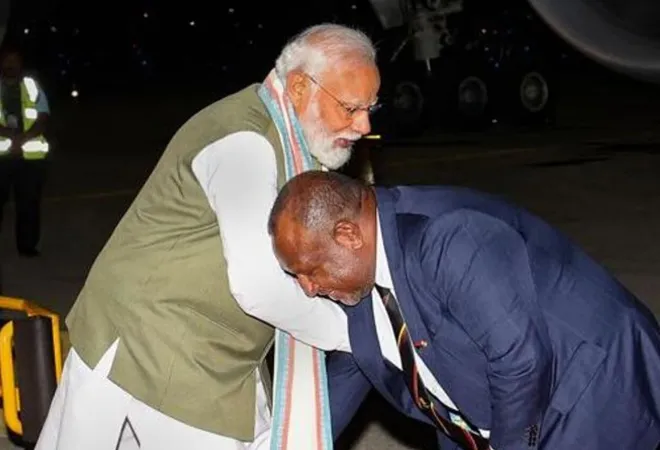-
CENTRES
Progammes & Centres
Location
The US and India no longer seem diffident about joining hands to counter the rising influence of China

China and the Solomon Islands concluded a pact that is ostensibly about Beijing helping strengthen the island nation’s national security capabilities.In the past, the jostling for influence was between Taiwan and China in the region. But gradually, as China’s economic clout grew, most Pacific Island nations except the Marshall Islands, Nauru, Palau and Tuvalu shifted their allegiance to Beijing. The Solomon Islands were lured by China with the promise of a $730 million aid package in 2019. Despite local discontent, as expressed by senior leaders suggesting that “the long-term interests of our country, in terms of development aspirations, as well as respect for democratic principles, human rights, rule of law, human dignity and mutual respect, lie with Taiwan, not the People’s Republic of China,” Beijing’s stranglehold has only increased. There were anti-government riots in late 2021, leading to further Chinese ingress into the state security apparatus. In February, Daniel Suidani, premier of the South Pacific nation’s Malaita province, a strong critic of Chinese presence on the island, was removed from office. China views the Pacific Islands as key to its Belt and Road Initiative and has used regional forums such as the Pacific Islands Forum (PIF) and the China-Pacific Island Countries Economic Development and Cooperation Forum (EDCF) quite effectively. Regular high-level interaction between China and the South Pacific has been the recent norm. Last year, then foreign minister of China Wang Yi pushed hard for a pan-region economic and security pact with 10 Pacific Island nations called the Five-Year Action Plan on Common Development. Though he did not succeed, it underlined the growing ambition China has for the region. In contrast, the US approach had been lacklustre. Washington has been unable and unwilling to prioritize its ties with regional island nations. As China’s footprint expanded, America’s has been shrinking—quite literally with the closing of its embassy in the Solomon Islands in 1993. Its engagement has also been unidimensional with a focus on its military outreach, ignoring the developmental priorities of the region. It took China’s overt positioning in the region to wake the US from its slumber, with Biden’s Indo-Pacific czar, Kurt Campbell, suggesting that the Pacific region might see “certain kinds of strategic surprise” in the form of Chinese military presence and that the US needed “to substantially step up
The views expressed above belong to the author(s). ORF research and analyses now available on Telegram! Click here to access our curated content — blogs, longforms and interviews.

Professor Harsh V. Pant is Vice President – Studies and Foreign Policy at Observer Research Foundation, New Delhi. He is a Professor of International Relations ...
Read More +